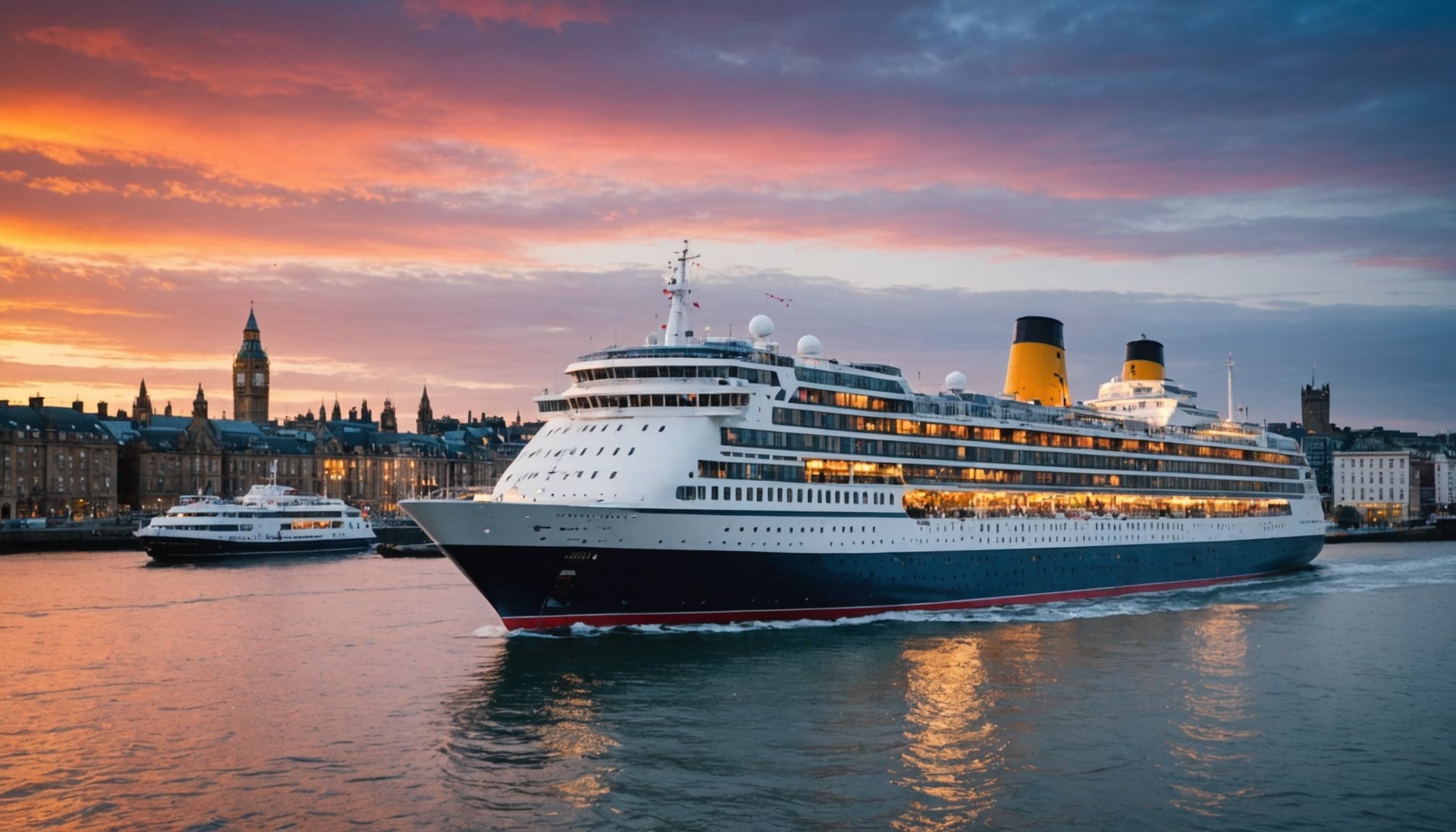Overview of UK Cruises and Maritime History
UK cruises offer an intriguing journey through the waters that have been instrumental in shaping not only Britain’s economic landscape but its cultural essence too. The British trading routes were pivotal, facilitating the exchange of goods, ideas, and cultures across continents centuries ago. Understanding the historical significance of British maritime trade reveals its profound impact on global commerce and cultural evolution, effectively weaving the United Kingdom into the fabric of world history.
These maritime routes have contributed significantly to the UK’s economic development, establishing it as a trading powerhouse. From the colonial era to modern-day global exchanges, these routes have been vital arteries for trade, supporting the economic backbone of the British Isles.
Also to read : Explore the best uk cruises to uncover the fascinating history of british military uniforms
UK cruises actively highlight this rich maritime history, offering enthusiasts an opportunity to explore the past. Cruises often incorporate visits to historical ports, museums, and on-board lectures, ensuring a comprehensive appreciation of the maritime heritage. Travelers can trace the bygone routes of commerce and experience the modern-day renditions of historical voyages, enhancing their understanding and appreciation of the UK’s enduring maritime legacy. Such voyages not only educate but inspire, underlining the historical might of British seafaring endeavors.
Top UK Cruises that Highlight Maritime History
Exploring top UK cruises that focus on maritime history offers both discovery and learning. These cruises provide beautifully curated historical itineraries that guide travellers through the layers of Britain’s seafaring past. Besides scenic voyages, they incorporate diverse cruise experiences, enriching guests with a blend of history and modern comfort.
Also to see : Explore top uk cruises: your guide todiscovering historic lighthouses along the stunning coastline
Cruise Line A: Historical Highlights
Cruise Line A is renowned for its immersive historical journey. It showcases pivotal maritime landmarks such as the iconic Portsmouth Harbour. Offering unique experiences, it features onboard activities like re-enactments of historical voyages, bringing stories of the sea to life. Testimonials frequently describe these experiences as awe-inspiring and enlightening.
Cruise Line B: Cultural Insights
Cruise Line B delivers rich cultural insights, providing in-depth exposure to ports with a strong maritime heritage, like the celebrated Liverpool docks. It emphasises educational activities, diving into local history and providing visitors with critical context, enriching their cruise experience beyond the surface-level view of destinations.
Cruise Line C: Themed Historical Cruises
For those eager for a complete thematic journey, Cruise Line C offers cruises explicitly designed around maritime history. The onboard educational programming is robust, with guest speakers and historians animating the narrative. These themed cruises are perfect for those enthralled by the intricacies of maritime legacy.
Key Historical Sites and Ports of Call
Embarking on UK cruises presents an opportunity to explore a spectrum of historical ports and maritime trade sites that paint a vivid picture of British maritime history. Notably, ports like Liverpool and Southampton stand out due to their significant roles in historic seafaring activities. Liverpool’s bustling docks once operated as a hub for global trading fleets, influencing trade dynamics profoundly. Visiting Southampton, travellers tread the same grounds that launched legendary voyages, such as the Titanic’s ill-fated journey.
Exploring these sites offers an immersive dive into the past, giving insight into the trade practices that shaped global commerce. Maritime trade sites are rich with stories of bygone eras, and guided tours often delve into the intricacies of their historic functions.
When it comes to enhancing the educational experience onshore, shore excursions come highly recommended. These excursions aren’t just about sightseeing; they provide valuable context, allowing visitors to understand the pivotal roles these ports played in the grand tapestry of maritime history. Opting for tours led by local historians or experiencing interactive museum exhibits can further enrich your journey, ensuring a deep appreciation for the cultural destinations you’ll encounter on your cruise.
Practical Tips for Booking and Enjoying UK Cruises
Booking a UK cruise that delves into the riches of maritime history is a rewarding venture for history enthusiasts. Careful selection is key, starting with picking a cruise line that prioritises historical experiences. Diverse packages cater to different interests, from itineraries focused on visiting historic ports of call to those offering comprehensive onboard lectures on British maritime history.
When preparing for your journey, pack with purpose. Essential items might include comfortable walking shoes for shore excursions and a notebook for jotting down fascinating historical insights. To maximise onboard experiences, participate actively in activities related to maritime culture and history, like themed lectures or ship tours.
Engagement with history during your cruise can be deeply enriched by connecting with local historians. Onshore interactions offer invaluable perspectives, often unavailable elsewhere. Consider attending lectures or informal talks organised on the cruise that feature these experts.
Finally, taking full advantage of the educational offerings means exploring beyond the cruise itself. Look for opportunities to engage with historical guides and resources that might enhance your appreciation for the colourful tapestry of UK’s maritime legacy, making your cruise both enjoyable and enlightening.
Additional Resources and Learning Opportunities
Exploring the depth of British maritime history extends beyond the voyage itself. A collection of maritime education resources is crucial for those intrigued by Britain’s nautical legacy. Exceptional books and documentaries can provide a rich tapestry of insights to further illuminate the extensive historical contexts.
Books like “Empire of the Seas” by Brian Lavery offer an in-depth analysis of Britain’s maritime dominance, while “The Slave Ship” by Marcus Rediker presents a harrowing account of preeminent trading routes. Accompanying these texts, documentaries such as “Sea Power” delve deep into Britain’s naval strategies and their historic significance.
Engaging with online platforms is another avenue for enthusiasts. Websites and discussion forums dedicated to UK cruises and maritime history offer interactive resources, including archived ships’ logs and virtual tours of historic vessels. These facilitate access to maritime trade sites that are otherwise less accessible.
For a local perspective, community organisations often connect visitors with historical guides who are deeply knowledgeable about the sea’s tales. They provide an authentic narrative about Britain’s seafaring legacy, enriching one’s understanding with personal insights and stories. These resources collectively offer an immersive educational journey into the world of the United Kingdom’s maritime past.










